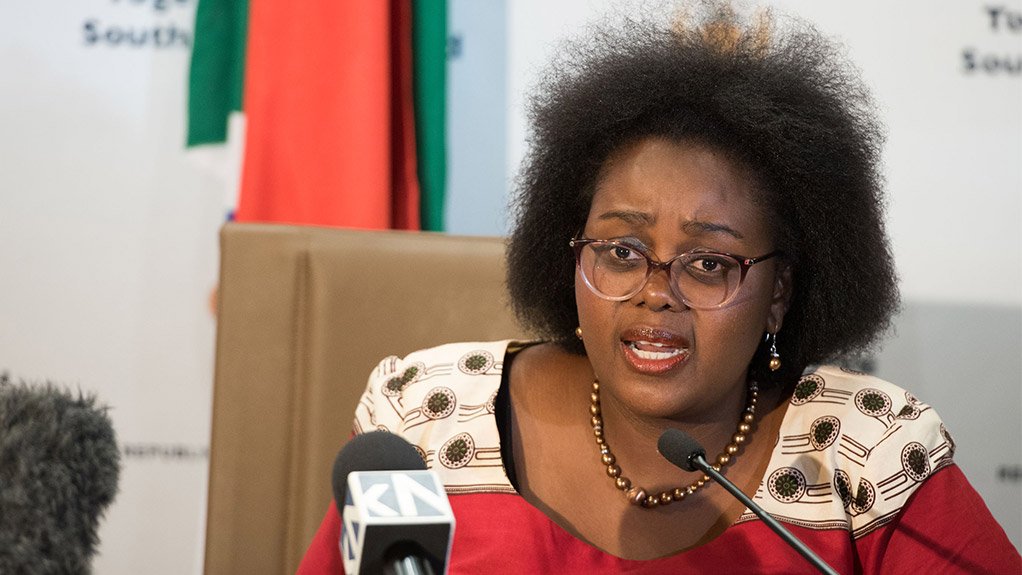Programme Director
MECs of Human Settlements
Executive Mayor of eThekwini, Cllr Mxolisi Kaunda
Deputy Mayor of eThekwini, Cllr Philani Mavundla
Members of the Portfolio Committee on Human Settlements present
Members of the Select Committee on Cooperative Governance and Traditional
Affairs, Water and Sanitation and Human Settlements
Amakhosi neziNduna Councillors present Captains of industry Distinguished Participants,
We have now come to the end of what I think has been a very successful Indaba. I think we should give ourselves a huge round of applause for what we have been able to do in these two days. As you have had from the reports from the facilitators of the various sessions, there is a greater appreciation of the role that the human settlements sector in driving our economy.
The human settlements sector has for the longest of time been seen as social development and there has not been as strong a focus on the economic aspect of the sector. The discussions in this Indaba have made a strong indication of the shift in the way that human settlements are viewed. This sector is a powerful economic sector that we should harness to advance our fight against unemployment, poverty and inequality.
The question is: what is it that all of us as stakeholders in this sector should do to unlock the economic potential of this sector?
More importantly: What is it that each stakeholder is willing to put on the table, to compromise so that we can plan, unlock, fund and develop sustainable human settlements for South Africans?
During these two days, we have heard from the business sector, academia, all levels of government, communities and traditional leaders. We largely reached a consensus on the areas in which our focus is necessary.
The availability of land for human settlements is an issue that requires urgent attention. I am often reminded as the Minister of Human Settlements that law empowers me to expropriate land without compensation if necessary, provided that such land is suitable and needed for human settlements. I think what is important is that we need to utilize all the tools at our disposal to ensure that we satisfy land hunger in both urban and rural areas.
The land issue is closely linked to planning, as we want to ensure that our planning systems are more coordinated within government institutions and between the government and the private sector.
What came out very strongly in the planning commission is how projects that have secured funding and are ready for implementation collapse because government institutions do not make land available on time due to internal government inefficiencies.
We will take this up through the intergovernmental mechanisms, including the District
Development Model, to deal with some of these issues.
The lack of availability of urban land is hampering our efforts to deal with the apartheid spatial development. This has led to projects moving away from inner cities to the periphery, commonly referred to as urban drift.
Urban drift is costly because it requires more investments in bulk infrastructure in greenfield projects, however, the inner city is also dealing with issues of ageing bulk infrastructure. The provision of serviced pieces of land can rapidly increase the number of housing opportunities.
Planning is also central to ensuring that the monies are allocated to the right projects and that budgets are spent on impactful projects.
We need innovative approaches to delivering houses, so that money is not returned to the treasury. It shouldn’t take so long to unlock land for human settlements in various localities.
Town planning in the municipalities needs to improve the turnaround time in unlocking land. We can’t allow projects to collapse because of poor intra-government planning coordination. An accountability mechanism should be put in place at each level to ensure that we facilitate faster project development.
In relation to funding, the government alone cannot mobilise enough resources to fund the sector. A partnership with the private sector is an absolute necessity for us to be able to meet the housing targets we have set for ourselves.
Our funding approach needs to be balanced. There is a view that says our approach is city-centric, and we are not paying attention to rural issues. There is a need for increasing programmes in rural areas.
Community participation remains a critical element in creating sustainable human settlements. In the end, what makes human settlements is the people. That is the reason why we believe that creating sustainable human settlements is just about building top structures and houses that will reduce the backlog. Our approach needs to have active participation of communities. We will work with communities going forward.
In summary, the following areas are critical for getting the sector going:
Making land available for human settlements
Improving the planning and coordination systems in government
Creating an ethical, capable developmental state to drive projects
Crowding-in funding for projects
Strengthening the public/private partnerships
Increasing community participation in the development of projects and human settlements
Creating accountability mechanisms for monitoring the performance of all stakeholders
We need innovation in the sector – in project development, funding and technical capacity utilization
We all need to commit to a social compact so that we can hold each other accountable
Let me once again thank you for gracing us with your presence in this Indaba. If we implement half of what we have agreed to implement, this sector will not only change the face of South Africa it will revolutionise the economy of South Africa.
As the Freedom Charter says …
I thank you
EMAIL THIS ARTICLE SAVE THIS ARTICLE ARTICLE ENQUIRY
To subscribe email subscriptions@creamermedia.co.za or click here
To advertise email advertising@creamermedia.co.za or click here











